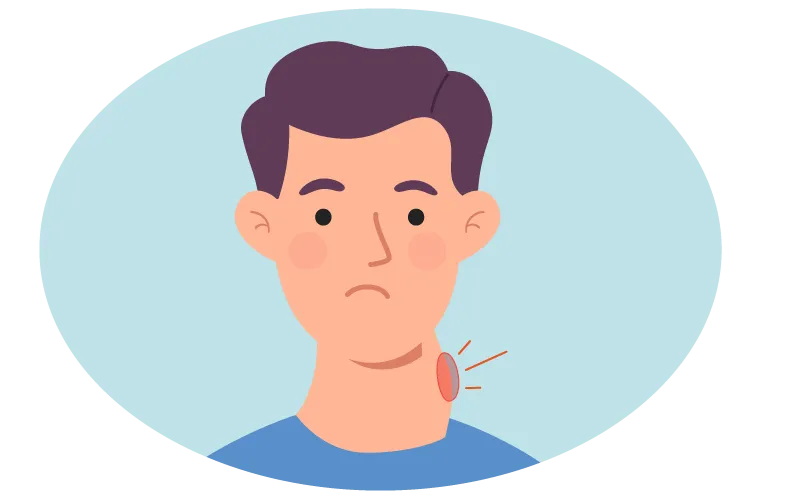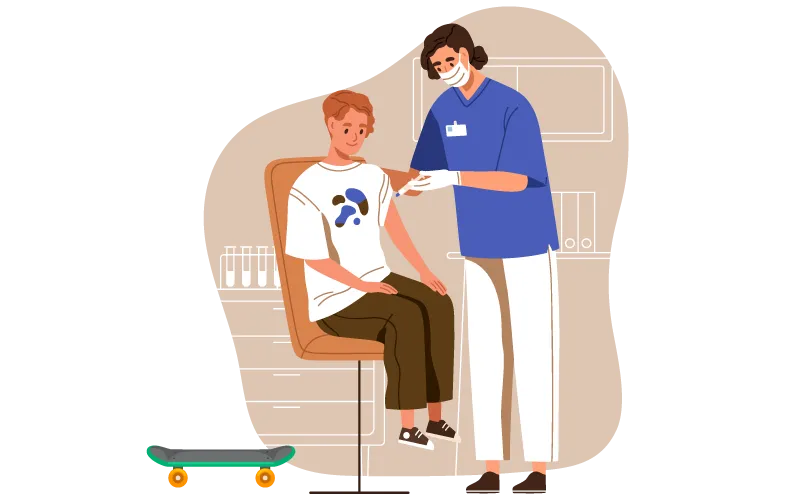Mumps
What is mumps?
Mumps is a viral infection best known for causing painful swelling of the salivary glands at the side of the face and below the ears.
The mumps vaccine has been part of routine childhood vaccination schedules in many EU/EEA countries since the 1980s and is now in all EU/EEA countries today, leading to a significant reduction in the number of reported cases.
At a glance
- An infection caused by a virus that causes painful swelling of the salivary glands around the face.
- Around 10 000 cases every year
- Vaccination can prevent mumps and the complications it can cause

What are the symptoms of mumps?
The most recognisable mumps symptom is painful swelling of the ‘parotid’ glands at the side of the face, below the ears. It can affect only one side or both sides of the face. Mumps can also cause:
- Fever
- Headache
- Joint pain
- Poor appetite
These symptoms often come first with the swelling appearing later. Although the symptoms of mumps are generally mild, it has many symptoms in common with more serious infections.
What are the complications of mumps?
In rare cases, mumps can cause potentially life-threatening complications or lasting damage such as:
- Meningitis (inflammation of the membrane that surrounds the brain and spinal cord)
- Encephalitis (inflammation of the brain)
- Subfertility (difficulty conceiving)
- Deafness in one or both ears
- Acute pancreatitis (inflammation of the gland that helps the body digest food and regulates blood sugars)
Mumps is also associated with an increased risk of miscarriage if a pregnant person contracts the virus during the first three months of pregnancy.

How is mumps spread?
Mumps is caused by a virus. It spreads in tiny droplets of fluid that an infected person releases when they cough, sneeze or speak. These droplets can settle on surfaces such as door handles.
People infected with the mumps virus are most likely to spread it in the days before they develop symptoms. This makes it difficult to avoid the infectious people.
Who is at risk of mumps?
Anyone can be infected with mumps at any age.
Although most people in Europe are vaccinated, mumps outbreaks occasionally happen in places where people are in close contact such as schools and universities. High vaccination rates mean that these outbreaks are smaller than they would be otherwise. They also do not last as long and do not spread as widely than they would if vaccination rates were lower. Mumps remains most common among people who are unvaccinated or not fully vaccinated.

How can mumps be prevented?
Vaccination is the most effective methods of preventing mumps.
The mumps vaccine is part of the childhood vaccination schedule in all EU/EEA countries. As a result, most Europeans are protected against mumps.
People with mumps can help to reduce it spreading by:
- Maintaining proper hand hygiene
- Avoiding contact with other people at least during the first week of symptoms
To help limit the spread of the mumps virus, doctors sometimes ask people with mumps to self-isolate until their symptoms have passed.
How is mumps treated?
Mumps usually clears up on its own within two weeks.
Treatment is usually only necessary in serious cases, to relieve symptoms and to treat any complications.
